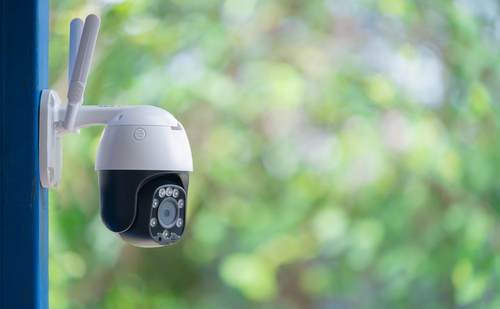CCTV System
Wireless or wired? Which do you choose for your application?
If you’ve been reading about security cameras on the web, you’ve probably seen that there are wired and wireless cameras.
We thought that you might like more information on the different types from someone who installs camera systems for a living.
So, we are going to have a brief look at both types of installations.
A wireless CCTV system needs each camera to be connected to a power outlet to operate. It’s only the video signal that is wireless!
So you will need to have an electrician install a power point for every camera that you want to install. Last time we checked, electricians charge around $120 to $150 per power point. Make sure you factor that cost into your purchase.
Most wireless system recorders, still need a data cable to run to your home internet. Some systems do not need a wire to run to the internet router, making it easier and faster to install. However, this slows the data to and from the recorder. Why? Because the camera image data sent by Wi-Fi to your router has to first go to the recorder to be recorded, and simultaneously sent back out to the router to your mobile device. This slows the whole data process and can actually cause some cameras not to load or show very poor images on your mobile device. We have experienced this first hand with some of our customers. Unfortunately, you won’t know until you install it.
An issue of concern is potential connectivity issues. The wireless system can be affected by drop in Wi-Fi or other signal interferences, affecting the system operation. As they require a power connection, they are also vulnerable to loss of power in a black-out or if a ‘baddie’ turns the power off.
A wireless CCTV system is a great system for renters. This system does not require wiring and can be easily mounted with double sided tape (no holes) and removed when the renters leave. But, you still have a power pack wire running from the power point to the camera.
DVR (Digital Video Recorder) or NVR (Network Video Recorder)
Both recorders record images from the cameras. The difference between the recorders is how they process the video data.
With a DVR, data is processed at the recorder. With a NVR system, data is encoded and processed at the camera, then streamed to the NVR recorder. The recorder is used for storage and viewing remotely.
As the data is managed differently by each video recorder, they require different types of cameras. DVR system is used with analogue cameras and is a hard-wired system.
NVR systems use IP cameras and can be either wired or wireless.
Remote Viewing
With CCTV systems, they can be reviewed remotely on your tablet or mobile. Download the app to access your cameras any time from any location – home, work or away. It is ideal for viewing cameras but is limited by the network bandwidth and the processor in the phone or tablet.
Access and view 24 hours per day from your mobile device where you are able to watch live or playback. The system will also issue alerts – be advised when movement is detected.
High Speed Internet
Each type of video recorder is connected by cable to a modem and assigned an IP address via your internet provider. The IP address is linked to your remote (i.e. home) location’s modem and PC.
A wired CCTV system has to be wired from each camera to the recorder. The recorder sends power up the wires to the camera. The recorder can connect to your internet so you can watch the cameras on your phone. A lot of blogs that I read, state something like – “This means that there are wires, leads and power cords which can be messy”. This is not correct. If the installation is done professionally, wires are hidden in the roof space or walls and are very tidy. Blogs also mention that this type of installation requires more installation time and labour, compared to a wireless system. True, it does take longer, however, bloggers fail to mention the fact that you may need an electrician, as mentioned above, so a cheap system is not really cheap.
There are significant advantages to wired systems.
- Reliable connection to the recorder
- Huge choice of cameras to suit the application
- Better cameras, better quality lenses, better construction
- Long warranties
- Higher megapixels of images to the recorder and to your mobile device. (see wireless cameras above)
- It doesn’t rely on Wi-Fi for the camera pictures to get to the recorder
- There is not interference from Wi-Fi signals caused by garage door remotes, remote control toys, other radio transmitting devices, and can’t be jammed.
If you live in an area that experiences ‘black-outs’ or power failures, a wired CCTV system can easily have a UPS (an un-interruptable power supply) fitted to provide power to the system in the event of power loss. UPS is not expensive and is used by businesses for their computer systems.
Before you rush out and buy a seemingly top of the range from your local Bunnings or Harvey Norman, give us a call and we can discuss your situation and what could be the most suitable system for you.

